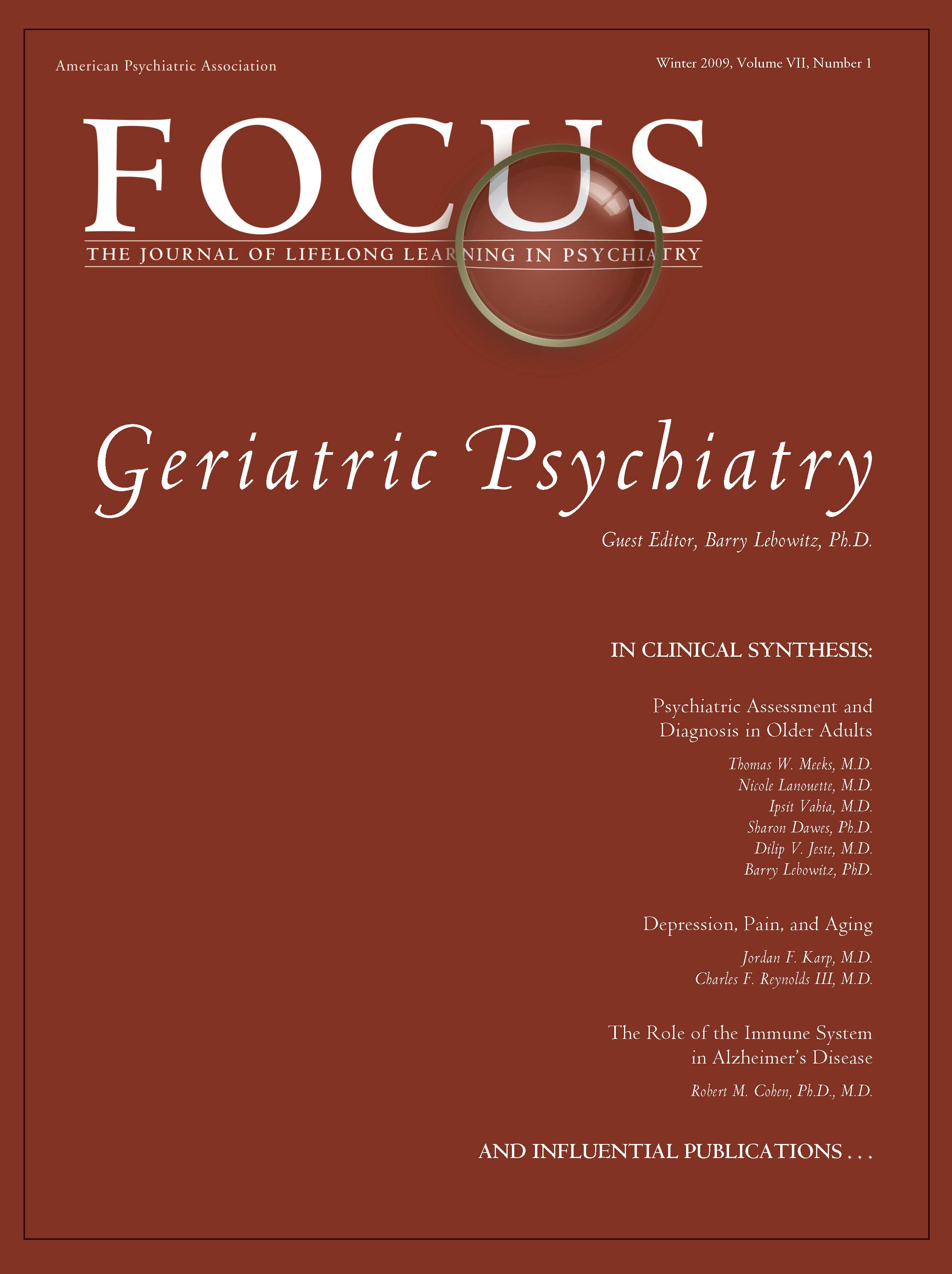Diagnosis and Treatment of Dementia: 3. Mild Cognitive Impairment and Cognitive Impairment Without Dementia
Abstract
Background:
Mild cognitive impairment and cognitive impairment, no dementia, are emerging terms that encompass the clinical state between normal cognition and dementia in elderly people. Controversy surrounds their characterization, definition and application in clinical practice. In this article, we provide physicians with practical guidance on the definition, diagnosis and treatment of mild cognitive impairment and cognitive impairment, no dementia, based on recommendations from the Third Canadian Consensus Conference on the Diagnosis and Treatment of Dementia, held in March 2006. Methods: We developed evidence-based guidelines using systematic literature searches, with specific criteria for study selection and quality assessment, and a clear and transparent decision-making process. We selected studies published from January 1996 to December 2005 that had mild cognitive impairment or cognitive impairment, no dementia, as the outcome. Subsequent to the conference, we searched for additional articles published between January 2006 and January 2008. We graded the strength of evidence using the criteria of the Canadian Task Force on Preventive Health Care. Results: We identified 2483 articles, of which 314 were considered to be relevant and of good or fair quality. From a synthesis of the evidence in these studies, we made 16 recommendations. In brief, family physicians should be aware that most types of dementia are preceded by a recognizable phase of mild cognitive decline. They should be familiar with the concepts of mild cognitive impairment and of cognitive impairment, no dementia. Patients with these conditions should be closely monitored because of their increased risk for dementia. Leisure activities, cognitive stimulation and physical activity could be promoted as part of a healthy lifestyle in elderly people and those with mild cognitive impairment. Vascular risk factors should be treated optimally. No other specific therapies can yet be recommended. Interpretation: Physicians will increasingly see elderly patients with mild memory loss, and learning an approach to diagnosing states such as mild cognitive impairment is now warranted. Close monitoring for progression to dementia, promotion of a healthy lifestyle and treatment of vascular risk factors are recommended for the management of patients with mild cognitive impairment.
(Reprinted with permission from Canadian Medical Association Journal 2008;178(10):1273-85. This work is protected by copyright and the making of this copy was with the permission of Access Copyright. Any alteration of its content or further copying in any form whatsoever is strictly prohibited unless otherwise permitted by law.)



